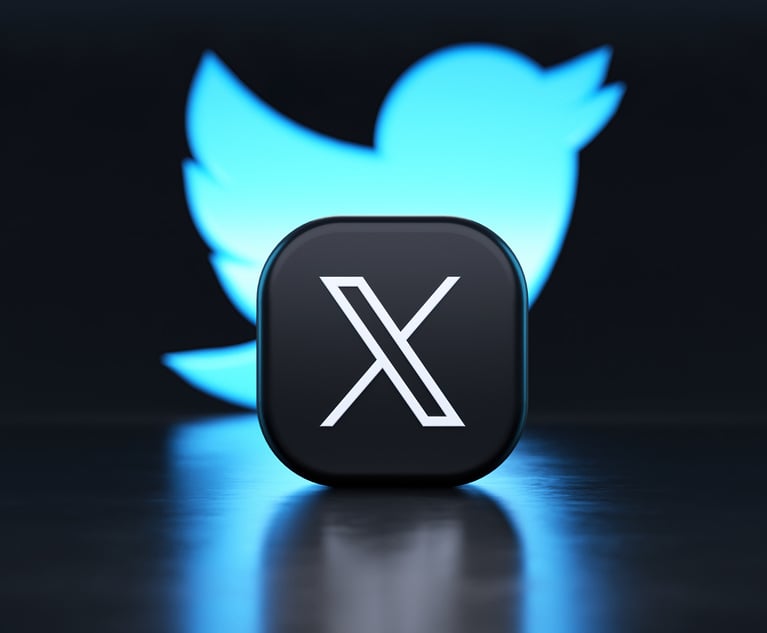 Jorge Espinosa of GrayRobinson.
Jorge Espinosa of GrayRobinson. The Right to a Jury Trial in Trademark Cases: 2 Years After Hard Candy
If you are seeking to enforce a federally registered trademark against a counterfeiter or infringer, you may not have the right to a jury. Instead, you will try the case before a judge, who serves as both the finder of fact and the determiner of law.
April 19, 2022 at 01:37 PM
5 minute read
Few things are more iconic of the American legal system than a trial by jury. Our films and literature are filled with visions of what occurs in a jury room. "Twelve Angry Men," "Runaway Jury," "To Kill a Mockingbird," and "The Verdict" are but a few of the many renown films focusing on the jury process. It is not surprising that those who think of having their day in court presume they will be before a jury of their peers. If, however, you are seeking to enforce a federally registered trademark against a counterfeiter or infringer, you may not have the right to a jury. Instead, you will try the case before a judge, who serves as both the finder of fact and the determiner of law.
Why are trademark cases tried before a judge without a jury?
This content has been archived. It is available through our partners, LexisNexis® and Bloomberg Law.
To view this content, please continue to their sites.
Not a Lexis Subscriber?
Subscribe Now
Not a Bloomberg Law Subscriber?
Subscribe Now
NOT FOR REPRINT
© 2025 ALM Global, LLC, All Rights Reserved. Request academic re-use from www.copyright.com. All other uses, submit a request to [email protected]. For more information visit Asset & Logo Licensing.
You Might Like
View All

$7M Arbitration Award Achieved by South Florida Lawyers Over NFL Dispute

Leader Entertainment Sues Florida Companies for Trademark Infringement, Unfair Competition
3 minute read
Elon Musk's X Must Face Trademark Infringement Suit Brought by Legal Ad Company
3 minute readLaw Firms Mentioned
Trending Stories
- 1How ‘Bilateral Tapping’ Can Help with Stress and Anxiety
- 2How Law Firms Can Make Business Services a Performance Champion
- 3'Digital Mindset': Hogan Lovells' New Global Managing Partner for Digitalization
- 4Silk Road Founder Ross Ulbricht Has New York Sentence Pardoned by Trump
- 5Settlement Allows Spouses of U.S. Citizens to Reopen Removal Proceedings
Who Got The Work
J. Brugh Lower of Gibbons has entered an appearance for industrial equipment supplier Devco Corporation in a pending trademark infringement lawsuit. The suit, accusing the defendant of selling knock-off Graco products, was filed Dec. 18 in New Jersey District Court by Rivkin Radler on behalf of Graco Inc. and Graco Minnesota. The case, assigned to U.S. District Judge Zahid N. Quraishi, is 3:24-cv-11294, Graco Inc. et al v. Devco Corporation.
Who Got The Work
Rebecca Maller-Stein and Kent A. Yalowitz of Arnold & Porter Kaye Scholer have entered their appearances for Hanaco Venture Capital and its executives, Lior Prosor and David Frankel, in a pending securities lawsuit. The action, filed on Dec. 24 in New York Southern District Court by Zell, Aron & Co. on behalf of Goldeneye Advisors, accuses the defendants of negligently and fraudulently managing the plaintiff's $1 million investment. The case, assigned to U.S. District Judge Vernon S. Broderick, is 1:24-cv-09918, Goldeneye Advisors, LLC v. Hanaco Venture Capital, Ltd. et al.
Who Got The Work
Attorneys from A&O Shearman has stepped in as defense counsel for Toronto-Dominion Bank and other defendants in a pending securities class action. The suit, filed Dec. 11 in New York Southern District Court by Bleichmar Fonti & Auld, accuses the defendants of concealing the bank's 'pervasive' deficiencies in regards to its compliance with the Bank Secrecy Act and the quality of its anti-money laundering controls. The case, assigned to U.S. District Judge Arun Subramanian, is 1:24-cv-09445, Gonzalez v. The Toronto-Dominion Bank et al.
Who Got The Work
Crown Castle International, a Pennsylvania company providing shared communications infrastructure, has turned to Luke D. Wolf of Gordon Rees Scully Mansukhani to fend off a pending breach-of-contract lawsuit. The court action, filed Nov. 25 in Michigan Eastern District Court by Hooper Hathaway PC on behalf of The Town Residences LLC, accuses Crown Castle of failing to transfer approximately $30,000 in utility payments from T-Mobile in breach of a roof-top lease and assignment agreement. The case, assigned to U.S. District Judge Susan K. Declercq, is 2:24-cv-13131, The Town Residences LLC v. T-Mobile US, Inc. et al.
Who Got The Work
Wilfred P. Coronato and Daniel M. Schwartz of McCarter & English have stepped in as defense counsel to Electrolux Home Products Inc. in a pending product liability lawsuit. The court action, filed Nov. 26 in New York Eastern District Court by Poulos Lopiccolo PC and Nagel Rice LLP on behalf of David Stern, alleges that the defendant's refrigerators’ drawers and shelving repeatedly break and fall apart within months after purchase. The case, assigned to U.S. District Judge Joan M. Azrack, is 2:24-cv-08204, Stern v. Electrolux Home Products, Inc.
Featured Firms
Law Offices of Gary Martin Hays & Associates, P.C.
(470) 294-1674
Law Offices of Mark E. Salomone
(857) 444-6468
Smith & Hassler
(713) 739-1250






